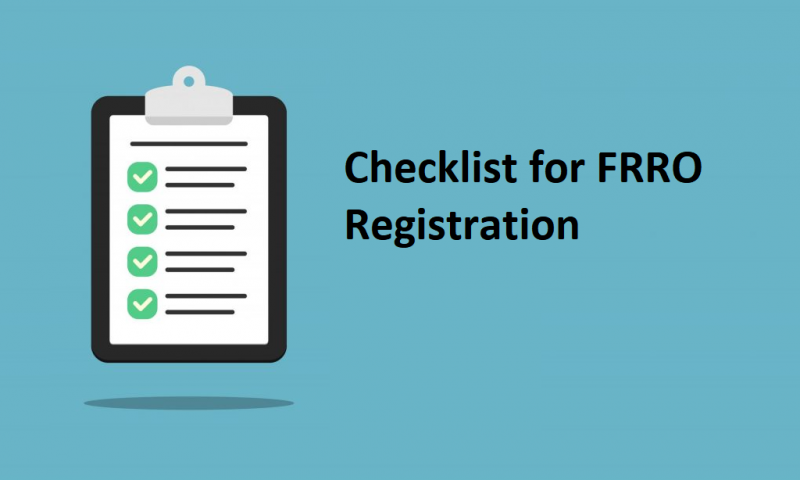India Residence Permits
Irrespective of origin, foreign nationals need various Indian residence permits based on immigration purpose and stay duration. These permits are categorised accordingly, and our Indian agents offer personalised assistance and information on permit prerequisites for those moving to India.

Types of Residence Permits Available in India
India offers a variety of temporary residence permits for foreign citizens wishing to stay in the country for extended periods, typically exceeding 90 days or three months within a six-month timeframe. These residence permits include:
- Employment Visa: This India visa is granted to individuals seeking employment in India and can be valid for up to 5 years, depending on the job arrangement.
- Business Visa: Designed for business purposes, the business visa also comes with a potential 5-year validity, facilitating commercial activities in India.
- Project Visa: For those involved in specific projects, this visa can be obtained for either one year or the project's duration, making it suitable for project-based work.
- Family Reunion Visa (X-Entry Visa): Known as the X-entry visa in India, this category allows family members to join their relatives living in India and has a maximum validity of 5 years.
- Research Visa: Individuals engaged in research activities in India can secure a research visa, which can also have a duration of up to 5 years.
- Medical Visa: For those seeking medical treatment in India, the medical visa can be obtained for a duration of one year.
Obtaining Residency in India Through Employment
One of the straightforward avenues for immigration to India and securing residency is through employment. This visa category offers the advantage of a potential issuance for up to 5 years, with the possibility of extensions, ultimately paving the way for permanent residency in India.
To qualify for this visa, certain conditions must be met:
- Professional Qualification or High Skill Level: The applicant should be a qualified professional or possess highly specialised skills relevant to their employment.
- Minimum Annual Salary: The applicant must receive a minimum annual salary equivalent to the provided amount. It's important to note that exceptions may apply for specific professions.
- Employment with an Indian Company: During their stay in India, b
Notably, foreign technicians and experts may stay in India for up to 5 years if a bilateral agreement exists between India and their home country. However, for highly qualified foreign workers in the IT and related sectors, the maximum duration allowed is 3 years.
Registration with the FRRO in India for Residence Permits
Individuals, whether for business purposes or personal relocation, who plan to register a company in India or reside in the country for an extended period exceeding 180 days are required to apply for a residence permit. The registration process must commence within 14 days from the date of arrival in India.

For those intending to stay in India for more than 180 days, mandatory registration with the Foreigners Regional Registration Office (FRRO) is necessary. However, it's important to note that individuals below the age of 16 are exempt from the requirement to register for a residence permit in India.
To obtain a residence permit in India, foreign nationals must complete the registration process with the nearest FRRO, which is typically located in major Indian cities, including:
- Delhi
- Mumbai
- Kolkata
- Amritsar
- Bengaluru
- Chennai
- Hyderabad
For those planning to reside in regions not covered by the aforementioned cities, registration must be carried out with the District Superintendents of Police operating in their respective regions. These authorities function under the FRRO and possess the legal authority to facilitate this registration process.
Required Documents for Obtaining a Residence Permit in India in 2023
Individuals seeking to apply for a residence permit in India in 2023 must prepare and submit the following essential documents:
- Four Passport Photos: Four recent passport-sized photographs are required as part of the application process.
- Valid Passport and Visa: Applicants must present a valid passport and a valid visa to support their residence permit application.
- Copies of Passport Photo Page and Visa: Three copies of the passport page containing the individual's photo and the valid visa must be submitted along with the application.
- Documents Establishing Residency in India: Applicants need to provide copies of documents that confirm their residency status in India.
- Registration Fee: A registration fee, as per the applicable regulations, must be paid along with the application.
For individuals arriving in India with the intention of starting a company, additional specific documents are required in addition to those mentioned above. These include information related to the Permanent Account Number (PAN), a letter in a prescribed format signed by the company's director, and any other corporate documents deemed necessary.
Acquiring Permanent Residency in India
There are several avenues for obtaining permanent resident status (PRC) in India, each catering to different circumstances:
- Investment: Non-Indian citizens can secure permanent residency by making a significant investment of a certain amount in a company in India, contributing to job creation.
- Overseas Indian Citizen (OCI) Card: If you have Indian origin but have renounced Indian citizenship and wish to return, you can obtain an Overseas Indian Citizen (OCI) card.
- Persons of Indian Origin (PIO) Card: If you are a descendant of Indian citizens, you can also qualify for permanent residency through the Persons of Indian Origin (PIO) card.
It's important to note that the duration of the residence permit can vary depending on the specific scenario that applies to you.
Ease of Obtaining Residence in India in 2023
Securing residence permits for individuals wishing to relocate to India in 2023 is a relatively straightforward process. There are two primary routes for prospective residents: establishing companies or seeking employment opportunities within the country.
The process of obtaining an Indian residence permit in 2023 can often be initiated online. However, it's essential for applicants to consider the specific regulations and requirements of their home country and the Embassy or Consulate serving their region.
Migration Trends in India for 2023
As reported by the United Nations, the migration rates in India for the year 2023 are as follows:
- The current net migration rate in 2023 stands at -0.329 per 1000 people, marking a decrease of 3.8% compared to 2022.
- In 2022, India had a net migration rate of -0.342 per 1000 people, reflecting a decrease of 3.93% from the previous year, 2021.
- The net migration rate in India for 2021 was -0.356 per 1000 people, showing a decline of 3.52% from the figures reported in 2020.
Eligibility Criteria for Permanent Residency Status in India
Permanent residency status in India is available to foreign nationals who are willing to invest through the Foreign Direct Investment (FDI) route, subject to specific conditions outlined by the Department of Industrial Policy and Promotion under the FDI policy.
To qualify for this status, applicants are required to meet the following criteria:
- Investment Requirement: The applicant must make an investment of INR 10 crore (approximately USD 1.5 million) within 18 months of their application submission or INR 25 crores to be invested within 36 months.
- Employment Generation: The investment should lead to the creation of employment opportunities for at least 20 local Indian residents each year.
- Restrictions on Nationality: Permanent Residency Status (PRS) is not applicable to Pakistani citizens or third-country nationals of Pakistani origin.
Additionally, there may be security-related restrictions imposed based on the applicant's country of origin as per FDI regulations.
Benefits of Permanent Residency Status in India
Acquiring permanent residency status in India comes with several advantages, including:

- Multiple Entry Visa: PRS holders receive a multiple entry visa with no specific stipulations.
- Exemption from FRRO/FRO Registration: PRS holders are exempted from the requirement of registration with the Foreigners Regional Registration Office (FRRO) or Foreigners Registration Office (FRO).
- Property Ownership: PRS holders can purchase one residential property for their own use, not solely for investment purposes.
- Spouse/Dependent Employment: The spouse or dependent of the PRS holder is allowed to seek employment in the private sector with the permission of the FRRO/FRO.
- Study Privileges: Dependents of the PRS holder are permitted to pursue studies in India without the need for a separate student visa, and no additional permission from the FRRO/FRO is required for this.
These benefits make permanent residency status in India an attractive option for eligible investors and their families.
Application Procedure for Permanent Residency Status in India
The application process for obtaining permanent residency status in India follows these key steps:
- Initial Business Visa: Initially, the applicant is granted a business visa with a validity ranging from 18 to 36 months. This visa is specifically labelled as a B-1 visa, which is an investor visa. Importantly, this visa is issued without any specific stipulations.
- Spouse/Dependent Visa: The spouse or dependent of the PRS applicant is granted a B-1X visa, which is aligned with the business visa of the primary visa holder and carries the same terms and conditions.
- Meeting Eligibility Criteria: Once the foreign investor has met the eligibility criteria in terms of investment and employment generation, both the applicant and their spouse/dependents must submit their applications together.
- Document Requirements: To initiate the application process, the following documents are typically required:
- Valid Passport and Visa
- Passport-size Photographs
- Proof of Residency
- Ministry of Home Affairs Clearance: PRS is granted after obtaining subject clearance from the Ministry of Home Affairs.
- Document Verification: Following the successful clearance of the application, the applicant is required to have their documents verified.
It's important to adhere to the specified procedures and document requirements to ensure a smooth application process for obtaining permanent residency status in India.
Revocation of Permanent Residency Status in India
The revocation of Permanent Residency Status (PRS) in India can occur under certain circumstances as outlined below:
- Failure to Meet Investment Conditions: PRS may be recommended for revocation by the Foreigners Regional Registration Office (FRRO) or Foreigners Registration Office (FRO) if the PRS holder fails to meet the conditions related to the required investment.
- Willful Default on RBI Guidelines: If the PRS applicant is found to be a willful defaulter of the guidelines issued by the Reserve Bank of India (RBI), it can lead to the revocation of their PRS.
- Mental Incapacity: In cases where the PRS holder is declared to be of unsound mind, their PRS status may be revoked.
- Undischarged Insolvency: If the PRS holder becomes an undischarged insolvent, it can result in the revocation of their PRS.
- Criminal Conviction: PRS may also be revoked if the holder is convicted of a criminal offence according to the law.
Visas for extended stay in India
Procedure for Securing a Long-Term Visa and Registering as a Foreigner in India
For non-Indian foreigners seeking a long-term visa, defined as one allowing stays exceeding 180 days (six months) continuously, India offers various visa categories such as Employment, Entry, and Student visas. Here's a step-by-step guide to the process:
Step 1: Choose the right visa type based on your purpose of stay.
Step 2: Register at the Foreign Regional Registration Office (FRRO) within 14 days of arrival.
Step 3: Provide the required documents, including registration form, passport, visa, proof of residence, and registration fee.
Step 4: Complete the registration process and obtain a certificate of registration.
Step 5: Apply for a residence permit if your stay exceeds 180 days.
Step 6: Obtain a PAN if you are working in India.
Step 7: Apply for visa extensions well in advance of your current visa's expiry date.
Important notes:
- Registration is mandatory for all foreigners staying in India for more than 180 days.
- Late registration may incur a fine.
- A certificate of registration is required to obtain a residence permit.
- A PAN is required for employment and obtaining a residence permit.
- Visa extensions are considered on a case-by-case basis.
By following these steps and adhering to the necessary documentation, foreigners can secure long-term visas and register as residents in India.
Different Approaches for Foreigners to Establish a Business in India
Foreign companies looking to establish a business in India have several options, each suited to different business needs and circumstances. Here are various approaches to starting a business in India:
- Company Registered under the Companies Act, 2013
Under the Companies Act, 2013, foreign companies can choose to register as a Private Limited Company (PLC) or a Public Limited Company, offering flexibility and ease of doing business in India. Minimum shareholder and paid-up capital requirements differ for PLC and Public Limited Company structures.
- Other Permissible Structures
Foreign companies in India can consider various permissible structures such as Liaison and Branch Offices for communication and specific business activities, Joint Ventures in partnership with local entities, Wholly-owned Subsidiaries through 100% FDI, and Project Offices for project execution, subject to RBI approval.
- Documents Required for Registration
For registration, the required documents vary based on the chosen business structure, including incorporation documents, agreements, financial records, approvals, and taxation-related paperwork.
- Process for Joint Venture
To establish a Joint Venture in India, negotiate and create an MOU that aligns with legal requirements, covering key aspects such as dispute resolution, shareholding, confidentiality, and intellectual property ownership, ensuring compliance with domestic and international laws.
- Process for Company
To register a company in India, obtain DIN and digital signatures, reserve a unique company name, file SPICe+ e-form with MOA and AOA, and pay relevant fees and stamp duty based on authorised capital during the incorporation process.
- Process for Liaison Office
To establish a Liaison Office in India, foreign companies should meet financial criteria, apply through an AD Category–I Bank, submit essential documents, obtain an RBI identification number, and cover expenses through inward remittances of foreign exchange.
These different approaches provide foreign companies with options to establish and operate businesses in India, each with its own set of requirements and benefits.
4 responses to “India Residence Permits”